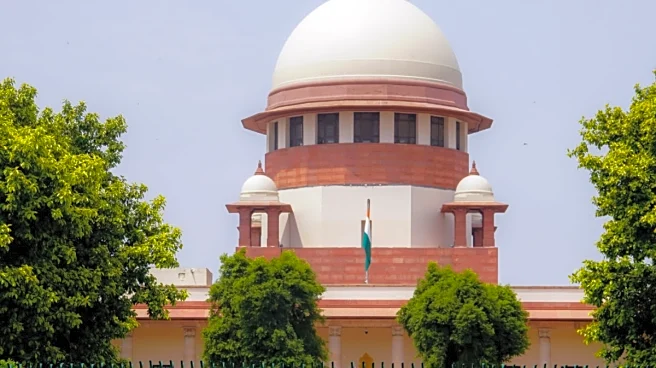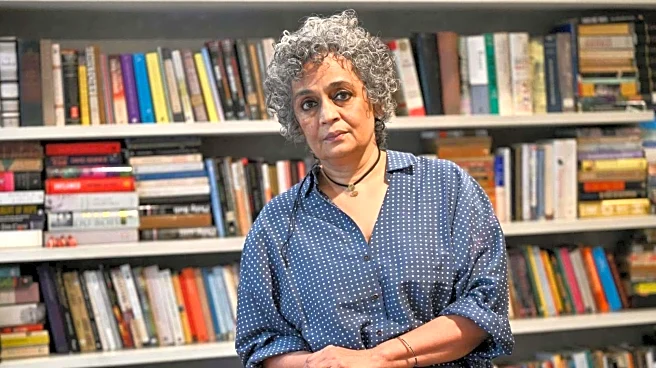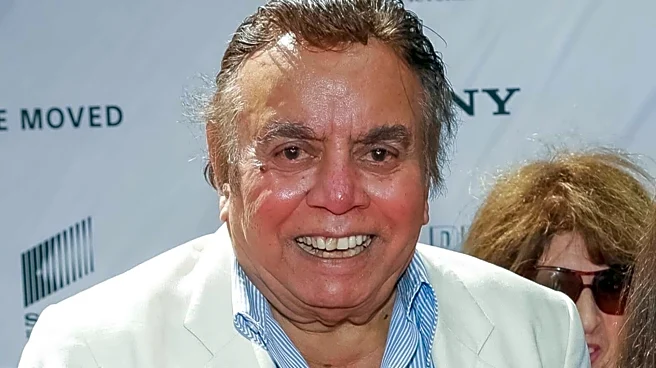The Supreme Court on Friday stated it is not interested in controlling or monitoring the affairs of Indian football. The court sought the views of former Supreme Court judge L Nageswara Rao on two contentious provisions in the draft constitution of the All India Football Federation (AIFF).
Justices P S Narasimha and A S Chandurkar mentioned they would discuss the matter with Justice Joymalya Bagchi, who was part of the bench that handled the AIFF’s draft constitution on September 19, following a plea from the federation.
Justice Rao prepared the draft constitution of the AIFF, which was subsequently approved by the Supreme Court.
“We have already said that the Supreme Court is not interested in controlling or monitoring the affairs of football.
We have already said that our judgment is only in the interregnum till the Act comes into play. These small things could have been easily taken care of. Anyway, we will seek the views of Justice Rao and issue a clarification,” the bench said.
Senior advocate Siddharth Luthra, representing the AIFF, informed the bench that the federation is scheduled to hold a special general body meeting on Sunday to adopt the draft constitution, as per the Supreme Court’s order.
He noted that FIFA, the governing body of world football, has objections to two clauses in the draft constitution, prompting the AIFF to seek clarification from the bench.
Luthra explained that according to the draft provision, if a person is nominated to the AIFF, they cease to be a member of a state football association. Conversely, if they cease to be a member of a state association, they cannot be a member of the national body.
Senior advocate Gopal Sankaranarayanan, appointed as an amicus curiae (friend of the court) in the case, argued that every clause had been clearly addressed in the judgment and that the AIFF should not have sought clarification.
He added that clarification was being sought by members of the AIFF’s current executive body, who have been allowed to continue in their posts until next year and wish to maintain control over the state associations.
“The only problem is that Justice Rao himself sought the deletion of these provisions but the apex court approved those in its verdict and now again, we have to seek his views,” Sankaranarayanan pointed out.
Cricket As Example
Referring to the constitution of the Board of Control for Cricket in India (BCCI), Senior advocate Rahul Mehra, the petitioner before the high court, argued that it makes no difference if a person is nominated to the national body, as they automatically cease to be a member of a state association.
The bench emphasised that the court’s intervention aimed to ensure the football federation’s affairs are managed efficiently.
“We have come this far and now, we do not want that there should be any confusion. We will have a word with Justice Rao and ask him to submit a report. You inform the special general body that the Supreme Court has agreed to give the clarification,” the bench told Luthra.
It further suggested that all parties work together and meet with representatives from the Centre to resolve the differences.
The AIFF approached the Supreme Court on Thursday seeking clarification in light of FIFA’s objections.
The federation’s concerns pertain to a clause in the draft constitution requiring Supreme Court approval for any constitutional amendment and another prohibiting its members from holding posts in state bodies simultaneously.
The AIFF claimed these provisions conflict with FIFA rules, which mandate member associations operate independently without external interference.
AIFF Constitution
On September 19, the Supreme Court approved the draft constitution of the AIFF with certain modifications, instructing the federation to adopt it within four weeks.
The court described this as a “new beginning for Indian football,” poised to take the “sport to greater heights.”
It directed the national football body to convene a special general body meeting to adopt the draft constitution.
The 78-page verdict authored by Justice Narasimha addressed 12 issues, including membership, suspension, age bar, and conflict of interest related to the AIFF and state football associations.
The court ruled that the draft constitution will apply to state associations despite their resistance.
(With inputs from PTI)


/images/ppid_a911dc6a-image-177103642565816962.webp)
/images/ppid_a911dc6a-image-177103504309993710.webp)
/images/ppid_a911dc6a-image-177103508492594205.webp)



/images/ppid_59c68470-image-177104254494215325.webp)

/images/ppid_a911dc6a-image-177104210287325129.webp)

/images/ppid_a911dc6a-image-177104202793221357.webp)
/images/ppid_a911dc6a-image-177104206710214315.webp)
/images/ppid_a911dc6a-image-177104202907093694.webp)
/images/ppid_59c68470-image-177104014803952296.webp)
/images/ppid_59c68470-image-177104006389961167.webp)
/images/ppid_a911dc6a-image-177103853218557950.webp)